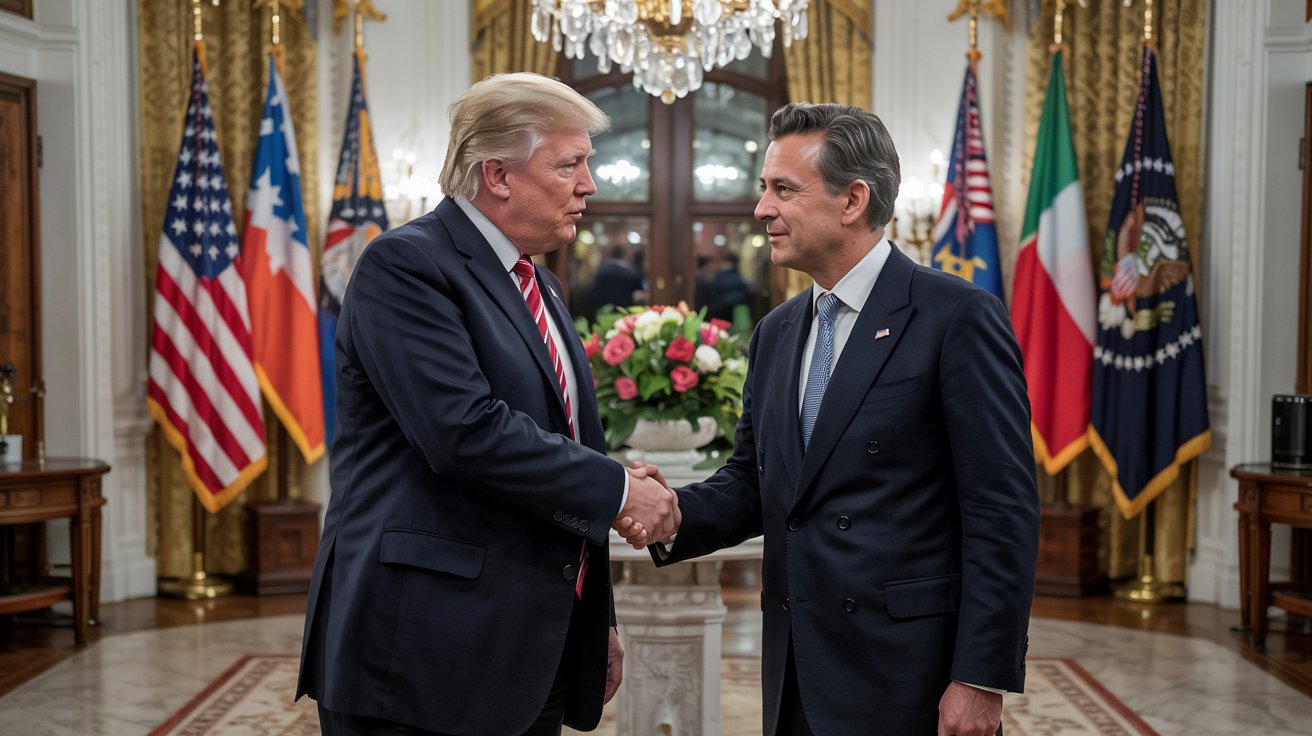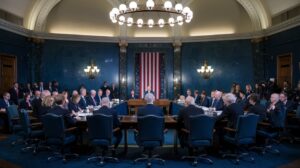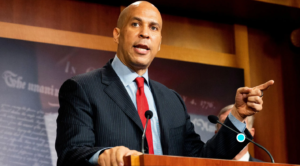Trump Administration’s Gift Diplomacy: A Strategic Shift in International Relations
The Trump administration’s diplomatic approach, widely known as “gift diplomacy,” has reshaped how foreign leaders and corporations engage with the U.S. government. This strategy involves foreign entities offering gifts, policy concessions, and business favors to gain favor with the administration. While such tactics have historical precedence, Trump’s tenure saw an intensified and highly scrutinized implementation.
Understanding the Concept of Gift Diplomacy
Gift diplomacy extends beyond physical presents; it encompasses political, economic, and business concessions made to strengthen relationships with the U.S. government. Trump’s administration often engaged in transactional diplomacy, where countries or businesses offered something valuable in exchange for political favor or policy support.
Key Elements of Gift Diplomacy
| Element | Description |
|---|---|
| Material Gifts | Items given to U.S. officials as symbolic gestures or tokens of goodwill. |
| Policy Concessions | Countries adjusting their laws or actions to align with U.S. interests. |
| Business Favors | Corporations adjusting policies or deals to remain in favor with the administration. |
| Political Alliances | Nations strengthening ties through diplomatic gestures, endorsements, or cooperation. |
Understanding these aspects helps in analyzing why leaders and businesses sought to appease the Trump administration.
Key Examples of Gift Diplomacy in Action
1. Mexico’s Border Policy Concession
One of the most significant examples of gift diplomacy was Mexico’s strict border control measures. Under Trump’s “Remain in Mexico” policy, the country deployed thousands of troops to curb illegal crossings. This move aligned with Trump’s immigration crackdown and prevented potential U.S. economic sanctions against Mexico. The strategy demonstrated how foreign governments adapted to Trump’s leadership style through policy adjustments.
2. Meta’s $22 Million Settlement
After facing legal and political pressure, Meta (formerly Facebook) agreed to a $22 million settlement intended for Trump’s presidential library. Many analysts saw this as an attempt by Meta to ease tensions with Trump, especially after the platform banned his account following the 2021 Capitol riots. The move highlighted how corporations leveraged financial settlements as a diplomatic tool.
3. Jeff Bezos’ Editorial Adjustments
Amazon founder Jeff Bezos, owner of The Washington Post, reportedly made subtle shifts in the newspaper’s editorial stance. Although The Washington Post remained critical of Trump, slight moderation in its tone was perceived as an effort to avoid regulatory scrutiny from Trump’s administration. This example showcases how media and business interests can intertwine with political strategies.
Impact on U.S. Foreign Relations
Gift diplomacy played a pivotal role in shaping America’s foreign policy during the Trump administration. Some benefits included:
- Faster Diplomatic Resolutions: Foreign leaders secured quicker agreements by offering policy adjustments.
- Enhanced U.S. Leverage: Trump’s transactional diplomacy strengthened his bargaining power.
- Short-Term Policy Gains: Many nations achieved temporary economic or political advantages by aligning with Trump.
However, this approach also led to significant drawbacks:
- Ethical Concerns: Critics argued that it encouraged favoritism rather than merit-based diplomacy.
- Unpredictability: Trump’s decision-making often lacked consistency, making long-term alliances unstable.
- Weakened Diplomatic Norms: Traditional diplomatic strategies were replaced with more transactional relationships, raising concerns about global stability.
Critics and Ethical Considerations
While gift diplomacy strengthened Trump’s global influence, it also raised ethical concerns. Key criticisms include:
- Lack of Transparency: Many deals were made behind closed doors, limiting public accountability.
- Potential for Corruption: The exchange of business favors and political concessions blurred ethical lines.
- Erosion of Traditional Diplomacy: Countries and corporations prioritized short-term benefits over long-term diplomatic stability.
The diagram below highlights the ethical concerns associated with gift diplomacy:
+-----------------------------+
| Ethical Concerns |
+-----------------------------+
| - Lack of Transparency |
| - Potential for Corruption |
| - Erosion of Diplomacy |
+-----------------------------+Conclusion: The Legacy of Trump’s Gift Diplomacy
The Trump administration’s use of gift diplomacy set a precedent in international relations. While some leaders and corporations benefited from transactional diplomacy, the long-term implications remain debated. Future U.S. administrations must decide whether to maintain this approach or return to more conventional diplomatic strategies that prioritize long-term relationships over short-term gains.
Key Takeaways:
- Gift diplomacy reshaped global negotiations, blending business interests with politics.
- It introduced a more transactional, deal-based foreign policy model.
- Ethical concerns surrounding favoritism and transparency remain unresolved.





